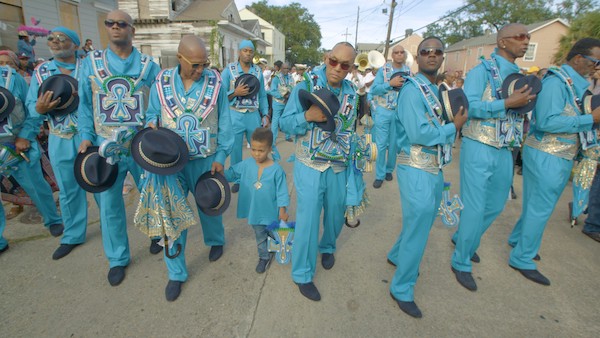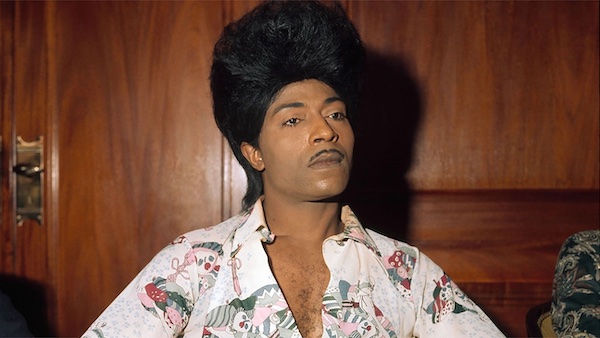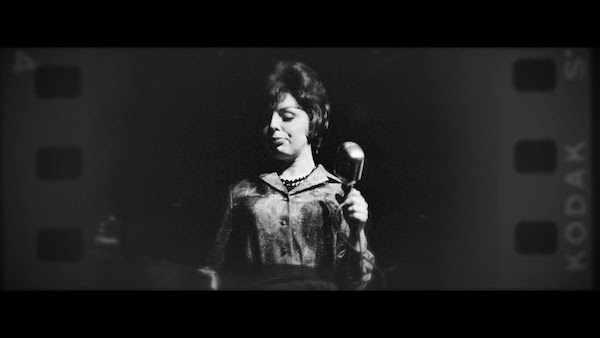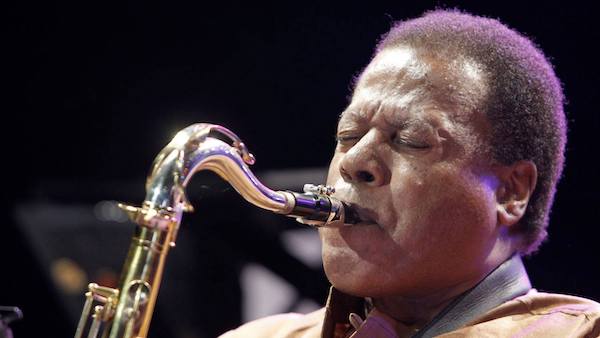Arts Feature: Ten Best Music Documentaries of 2023
By Noah Schaffer
Some of these films are easier to see than others, but they’re all worth seeking out.
With the end of Covid-related delays, there was a flood of music documentaries in 2023. The catch was that seeing them remained as complicated and sometimes frustrating as ever. PBS, independent movie houses, and both in-person and online festival screenings continued to be essential parts of the documentary infrastructure. Films on the nascent Paramount + and MGM + services on Milli Vanilli and the ’60s Bay Area rock scene looked intriguing, but not enough to compel me to add even more streaming service fees to my monthly budget. And I missed local screenings of films about Joan Baez, Pauline Oliveros, James Cotton, and female New England musicians. Perhaps, if the stars align, they’ll be on next year’s list. I make my selections from those that I can view, not on the official release dates of titles that can spend years in limited festival circuit screenings.
If you’d like to see one of the films on this list that isn’t on a major streaming service, I recommend joining the film’s e-mail list or following the movie’s social media channels for updates about future screenings.

Black Men of Labor marching and singing “Amazing Grace” during their annual second line parade. Photo: courtesy of City of a Million Dreams.
City of a Million Dreams – As I mentioned when I reviewed it a few months ago, City of a Million Dreams is far from the first documentary devoted to the culture of New Orleans street parades. But even in a crowded field the documentary stands out with its mix of excellent historic sourcing and recently filmed scenes. It’s required viewing for anyone who wants to learn the story behind the colorful Mardi Gras parades and brass band funerals that the Crescent City is famous for. The film is being shown at festivals and theaters.
Garland Jeffreys: The King of In Between – Rock singer/songwriter Garland Jeffreys is one of the voices that epitomize New York. His music uniquely synthesized his Black, Puerto Rican, and white heritage as well as his love for doo-wop, folk, and reggae. While there are plenty of on-screen testimonials from celebrities like Laurie Anderson and Bruce Springsteen, the fact that they are friends as well as admirers elevates them above the usual talking head appearances. Even more compelling are homages from fellow rockers of color, like Alejandro Escovedo and Vernon Reid. Best of all, the viewer sees and hears how Jeffreys’s music developed from his early folk days, moving from his signature song “Wild in the Streets” to his ’90s masterpiece LP Don’t Call Me Buckwheat and his late-career self releases. The film is so even-handed in its depiction of the ups and downs of Jeffreys’s career that I did not realize until the closing credits that it had been directed by his wife, Claire Jeffreys. The film has just started playing the festival circuit.

Little Richard in Little Richard: I Am Everything.
Little Richard: I Am Everything and Little Richard: King and Queen of Rock ‘n’ Roll – The story of how a queer Black disabled child from Macon, Georgia, helped invent both rock music and rock attitude while struggling with his own sexuality proved so irresistible that two Little Richard documentaries were released this year. There’s significant overlap — not just in their telling of his life but even in the talking heads who were interviewed. I know of at least one viewer who saw them both on TV and assumed that the exact same film had simply been reedited. I Am Everything, which is now on HBO’s recently rebranded Max streaming service, does a better job of contextualizing Richard’s early musical development and how it was shaped by his lesser-known peers, such as Esquerita and Billy Wright. King and Queen, a PBS/BBC co-production now streaming on PBS’s Passport, is a bit superior in how it grapples with Richard’s later life. Given how Richard made music and lived life, it’s no surprise that there’s never a dull moment in either. Hopefully they’ll inspire the viewer to check out some of the wonderful gospel and soul records that Little Richard made after his ’50s heyday. Arts Fuse review
One Hand Don’t Clap – Although it was filmed and originally released in the ’80s, even diehard calypso fans were unable to see this film until its recent restoration by the Academy Film Archive and the Women’s Film Preservation Fund of New York Women in Film & Television. Trinidadian music icons Lord Kitchener and Calypso Rose are seen rocking the calypso tents during Carnival. As it turns out, director Kavery Kaul caught this vital musical culture when it was hitting its peak. Soca was just starting to bubble up, and it would eventually overtake traditional calypso storytelling. I got to see this film at the Regent Theater in Arlington, where it was played as loud as it should be. (Disclosure: I was a pro-bono moderator of a post-film Q&A). The film continues to be shown at select venues, especially, but not exclusively, in the UK.
Roots of Fire – In 1991, the legendary Les Blank made Marc and Ann, about the Savoys and their role in the rescue and revival of Cajun music and culture of South Louisiana. Now the pair’s children, Wilson and Joel, are among those showcased in this look at how Cajun music continues to thrive in the hands of younger musicians. This beautifully made film doesn’t try to be a history lesson; it is a powerful look at daily life in a land where traditional music is still a way of life. This film is playing festivals as well as select theatrical engagements.

Carol Sloane at Newport, 1961. Photo: courtesy of Sloane: A Jazz Singer
Sloane: A Jazz Singer – Jazz vocalist Carol Sloane grew up in Rhode Island, made her name singing at a pair of Newport Jazz Festivals in the ’60s, and returned to live in Boston for many years until her death earlier this year. But, beyond the local interest of a jazz film whose opening scene takes place at Market Basket, Sloane proves to be an incredibly compelling figure. She was beloved by critics and audiences who were partial to the Great American Songbook, but Sloane suffered from imposter’s syndrome and would sometimes go for long stretches without any significant recording or touring activity. Sloane recounts her history while preparing for what would be her farewell appearance at Birdland, a concert that gives this film something that many documentaries about underrated musicians never get: a triumphant coda. The film is still on the festival circuit. Arts Fuse review
The War on Disco – Long after it has disappeared from the charts, the rise and fall of disco has remained an unceasingly fertile topic for authors and filmmakers. Its origins in Black queer dance culture have been well documented elsewhere, but this 50-minute film narrows in on the backlash against disco. The film spotlights the Disco Demolition Night during a White Sox doubleheader at Chicago’s Comiskey Park. What was intended to be a radio promotion stunt turned into a riot. The DJ who dreamed up the fiasco, Steve Dahl, did the filmmakers a favor by refusing to be interviewed. With him out of the way the film could focus on valuable recollections from attendees, as well as other Chicagoans and historians who contextualize the riot’s unique place in the intersection of race, music, class and sexuality. The film can be viewed on PBS’s Passport service.
They Shot the Piano Player – This is the first time an animated feature has appeared on this list! And there’s a bit of fiction woven in as well, as Jeff Goldblum voices the character of an American music journalist who is investigating why Brazilian pianist Francisco Tenório Júnior was “disappeared” in Argentina in 1976. Tenório was real, along with the many Brazilian musical luminaries whose interviews are depicted in animated form. It’s a very unconventional but effective way of telling a rather compelling story about a great musician who was in the wrong place at the wrong time. The second music-related animated feature by Chico & Rita creators Fernando Trueba and Javier Mariscal, the film has been picked up by Sony Classics, which will be screening it in theaters starting in February.

Wayne Shorter on tour with Marcus Miller’s “A Tribute To Miles” in 2011. Photo: Facebook
Wayne Shorter: Zero Gravity – Few jazz artists have ever been given a cinematic spotlight this lavish, in-depth, or high-profile: A three-part series, which is streaming on Amazon Prime. But saxophonist and composer Wayne Shorter, the philosopher king of modern jazz, is most deserving of this fascinating deep dive into his career. Even the most passionate Shorter fan will likely come away with new insights into how his life and his music were intertwined, while casual jazz listeners will learn much about the arts of improvisation, composition, and life.
WHAM! – The pop duo of best friends George Michael and Andrew Ridgeley took the charts by storm in the mid-’80s, becoming very popular very fast. This fun and nicely paced Netflix account of their ascent is mostly voiced through the audio recollections of Ridgeley. Of course, after the pair split Michael zoomed to superstardom. Ridgeley, on the other hand, has had one of the lowest profiles of any ex-pop star ever, releasing just one 1990 solo album. If you’re wondering where he is now you won’t get the answer from this film, which ends when WHAM! calls it quits.
Also worth watching:
“Love to Love You, Donna Summer”
“Wortown Rising: The Untold Story of the First Hip-Hop Scene in Worcester, MA”
“Where Are You, Jay Bennnett?”
“Max Roach: The Drum Also Waltzes”
“The Life and Times of Billy Gray”
Heaven Stood Still: The Incarnations of Willy DeVille
Biggest disappointment:
“Dionne Warwick: Don’t Make Me Over” – The vocal vehicle for those Bacharach/David pop masterpieces has had plenty of highs (overcoming the racist record industry of the ’60s and donating the proceeds from “That’s What Friends Are For” to AIDS research) and lows (her Psychic Friends Network shilling and, frankly, her current performances). Both extremes are rapidly dispatched in this ultra-conventional effort, with her famous friends offering little more than hagiography.
Noah Schaffer is a Boston-based journalist and the co-author of gospel singer Spencer Taylor Jr.’s autobiography A General Becomes a Legend. He also is a correspondent for the Boston Globe and DigBoston, and spent two decades as a reporter and editor at Massachusetts Lawyers Weekly and Worcester Magazine. He has produced a trio of documentaries for public radio’s Afropop Worldwide, and was the researcher and liner notes writer for Take Us Home – Boston Roots Reggae from 1979 to 1988. He is a 2022 Boston Music Award nominee in the music journalism category. In 2022 he co-produced and wrote the liner notes for The Skippy White Story: Boston Soul 1961-1967, which was named one of the top boxed sets of the year by the New York Times.
Tagged: Garland Jeffreys: The King of In Between, Little Richard I Am Everything, Little Richard: King and Queen of Rock ‘n’ Roll, One Hand Don’t Clap, Roots of Fire, Sloane: A Jazz Singer, The War on Disco, They Shot the Piano Player, Wayne Shorter: Zero Gravity


Wow, What a great collection! So much to learn. Thank you Arts Fuse for your excellent writing, bringing artists’ works to life. Cannot wait to see these documentaries and hear the music Grateful for your daily entries.